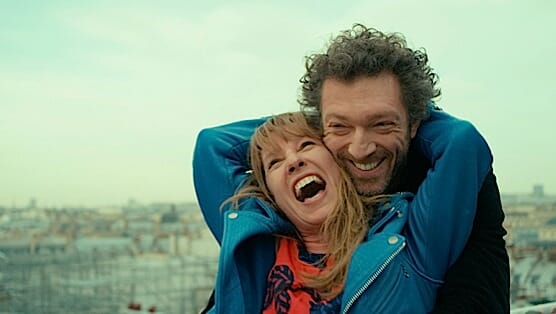Mon Roi (2015 Cannes review)

We’ve all known couples like this. Maybe he’s a hopeless playboy—charming, sure, but also unreliable, unwilling to commit. And she’s a smart woman, except when it comes to him, failing to see his unworthiness as a mate because she simply can’t get enough of him. In real life, if you’re friends with this sort of couple, it can be hard to know what to do: They probably shouldn’t be together, and lord knows they break up and get back together repeatedly, but saying anything won’t do any good. You’re just grateful you’re not in one of those relationships yourself.
The ambition and the limitation of the French drama Mon Roi is that it’s all about one of those couples, and filmmaker Maïwenn refuses to judge the lovers—even indulging their rollercoaster of a relationship. The results are mixed, but on the whole this is an honorable, nervy attempt to get inside the head of a woman who really, really doesn’t need her headache of a husband—except, of course, she desperately does.
Mon Roi is structured as a series of extended flashbacks. Attorney Tony (Emmanuelle Bercot) has suffered serious injuries while downhill skiing, and as she goes through months-long rehab to regain the use of her right leg, her mind drifts back to the most important, difficult, draining relationship of her life. That would be with Georgio (Vincent Cassel), a restaurateur and night owl whom she met years earlier in a club, a flirty rapport established instantly. (Actually, they’d met before that—back when she was a bartender and he was a regular—but he doesn’t remember.)
Soon, they’re involved in a passionate relationship, and the early stretches of Mon Roi lay out their courtship, emphasizing what an almost annoyingly happy couple they once were. Again, Tony and Georgio are like some couples we all know: the kind so infatuated with and charmed by one another that it can get grating. But those blissful early months of dating escalate quickly, with Georgio, who’s used to dating models, insisting that he wants to have a baby with the more intelligent and mature Tony. They leap before they look, as Tony quickly gets pregnant and a wedding is hastily arranged. But as a sign of their romantic self-absorption, they refuse to wear rings, suggesting their refusal to abide by the stifling conventions of marriage.
As we see these flashbacks, Tony in the present is going through her painful rehabilitation while making friends with her fellow patients. But that story isn’t the one that hooks us: We’re more invested in Tony and Georgio, their bond, and how it went wrong. (Keeping plot details vague, I’ll simply say that Georgio has a harder time abandoning his womanizing bachelor past than he thought.) But Tony can’t simply cut the cord with this man—not only do they have a baby on the way, but she feels deeply connected to him. On one hand, it’s easy to understand her attraction to this handsome, debonair man, but on the other, we realize that maybe her brother (a wonderfully deadpan Louis Garrel) was right all along: Georgio’s a cad, he’s always going to be a cad, and she’s too bright and successful to waste her time with someone like him.
-

-

-

-

-

-

-

-

-

-

-

-

-

-

-

-

-

-

-

-

-

-

-

-

-

-

-

-

-

-

-

-

-

-

-

-

-

-

-

-








































